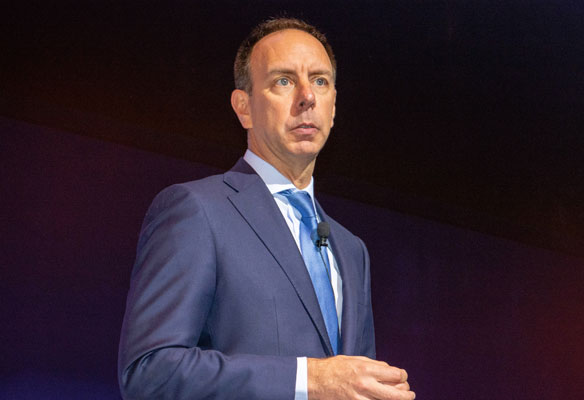
Aviation is not a ‘cash cow’ IATA reminds governments
A taxing situation
MIKE DUNBAR
“Far too many governments in Latin America and the Caribbean see aviation and air travel as a target for heavy taxes and fees, and, in doing so, they are killing the golden goose. The value of aviation is not in the tax receipts that can be squeezed out of it, but rather in the economic growth and job creation it supports.”
That was the critical assessment delivered to a recent press briefing by IATA’s regional vice president for the Americas Peter Cerda (pictured above), who explained, “Latin America and the Caribbean remain a very expensive place to do business because taxes, fees and government policies impose a huge burden on airlines and stifle air travel by making it more costly than it would be otherwise.”
And he charged, “Unfortunately, aviation continues to be seen as a cash cow for many governments across the region, especially across the Caribbean.”
Prime example
Cerda singled out Barbados as a prime example of excessive taxation, stating, “Governments often look to aviation for quick revenue generation, like Barbados last October, by introducing a new Airline Travel and Tourism Development Fee of US$70 for passengers flying outside the Caribbean Community and US$35 for passengers flying within Caricom.”
He pointed out, “This means a family of four visiting from North America or Europe now has to factor in an additional US$280 in ticket taxes,” adding, “What governments sometimes forget is that passengers have more choice than ever and can be anywhere in the world within 24 hours, so Caribbean states no longer just compete with other Caribbean islands, but rather global beach destinations.”
But Barbados isn’t the only nation in the region that has caught IATA’s attention for excessive charges and taxes.
Cerda told reporters that Brazil’s jet fuel pricing policy adds an extra $255 million a year for airlines serving the country, while a handling fee in the fuel pricing formula in Mexico adds an extra $45 million per year to airline budgets.
He cited Peru which “has a tourism promotion tax on tickets, which seems to defeat the purpose of promoting tourism, and collects a value-added tax on overflight charges and international tickets in contradiction of International Civil Aviation Organization standards.”
No guarantee
And he pointed to Colombia, which ranks near the bottom of 138 countries in terms of the cost-competitiveness of its fees and taxes, according to a World Economic Forum report.
“On average, taxes and fees add $20 to a one-way domestic ticket and more than $100 for an international ticket,” said Cerda.
On the plus side, he highlighted Chile, which recently announced a reduction of departure taxes for domestic and international operations and recognized Argentina for its “la revolucion de los aviones” initiative, designed to open hundreds of new routes, deregulate domestic pricing and encourage the arrival of new entrants.
Cerda predicted, “Over the next 20 years, we expect 4.2% average annual growth, so that more than 750 million journeys are expected to touch the Latin America and Caribbean region by 2036.”
But he also issued a caveat, stating, “While this is great news, it is not guaranteed. We need to focus on three key areas to ensure this growth can take place – effective infrastructure to accommodate growth, reasonable costs and taxes that don’t kill growth and a modern regulatory framework that supports growth.”

